|
Angie
Peters, executive director of the local YMCA, has the perfect
summer solution for you and your family–Summer Camp 2000.
"The children who participate in the Y camp meet other
children from all over the county and make many lasting
friendships," she says. "This is so good for our
community because it helps the children learn how to meet and make
new friends and helps the children to understand how to get along
with people that are different from them."
The
well-trained staff provides good role models and a super
curriculum that overflows with activities. Ms. Peters explains
that each week at camp has a different theme, which the planning
staff fills with games, arts and crafts, character development
lessons, songs, guest speakers and field trips.
The
Summer Day Camp program is offered from 6:45 a.m. to 6 p.m.,
beginning the last day of the school year and ending the day
before school resumes in the fall. Ms. Peters expects to have 65
to 70 kids in summer camp beginning May 30. "Camp takes place
in an outdoor setting for most of the day so that the children
have a true camp experience," she says. "Last year we
had 55 to 60 kids in a week and it was a really fun summer."

The
programs and services offered by the Lincoln Area YMCA are open to
anyone in Logan County. A membership initiative was put into place
in January of 1990 by the staff and board of directors in order to
give the YMCA participants a sense of "belonging to the Y
family." YMCA members receive membership cards listing
discounts to local merchants, a quarterly newsletter, brochures,
special mailings, and invitations to member picnics and events.
The YMCA’s membership fee is $5 per family each calendar year
and is paid the first time someone in the family signs up for a
program. According to Ms. Peters, there are currently more than
3,200 members of the Lincoln Area YMCA. "We would like to see
that number grow," she adds.
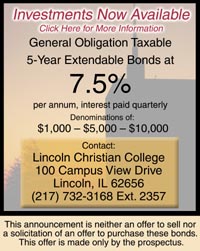
In
addition to Summer Camp 2000, the YMCA is offering a Preschool
Camp program. For more information about these or any other summer
activities at the YMCA, call 735-3915.
Following
is list of the dates and descriptions for Summer Camp 2000:
Session
1
May
30 – June 2
"School’s
Out for Summer"
Children
and instructors will get to know one another during this session
through fun activities and games. Children will be assigned their
group names, learn camp rules and procedures, be introduced to
character development programs and also learn about the YMCA’s
exciting summer reading and writing program.
Session
2
June
5 – June 9
"Boogie
with Bugs"
Campers
will learn many amazing facts about bugs and insects through
science kits and instruction. By the end of the week, they will
also know more about plant life and gardening skills.
Session
3
June
12 – June 16
"Farm
Fun"
Campers
will enjoy a field trip to a farm this week to learn about raising
farm animals and to see some of the products and crops that farms
produce.
(To top of second
column)
|
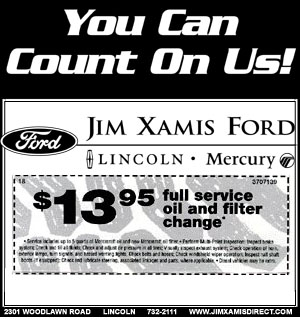
Session
4
June
19 – June 23
"The
Magic School Bus"
Campers
will experience imaginative trips to where "The Magic School
Bus" takes them. They will acquire insights related to the
five senses, inside the earth, inside a beehive, hurricanes and
"kitchen chemistry."
Session
5
June
26 – June 30
"Experiencing
the USA"
Campers
will have an opportunity to learn about various places in the
United States that are exciting to people from all over the world.
Important places in Illinois (including Chicago); Juneau, Alaska;
the Colorado mountains; Washington, D.C.; and New Orleans are
places the YMCA will highlight throughout the week with stories,
games, videos and activities. A field trip to New Salem State Park
is planned.
Session
6
July
3 – July 7
"Let
Freedom Ring"
This
week the children will experience American history and patriotism
to gain insight into American government. An American Marine who
served in the Gulf War will share his experiences with the
children.
Session
7
July
10 – July 14
"Traveling
Through Space"
Children
will learn lots of facts about the solar system and astronauts,
and will design a space shuttle. A field trip to the Children’s
Museum in Decatur is planned.
Session
8
July
17 – July 21
"Connecting
Our Cultures"
During
this session, campers will learn about Mexico, Africa, Japan,
Russia and Germany. Customs, beliefs, foods and dances from these
cultures will be shared.
Session
9
July
24 – July 28
"Surfing
the Deep Blue Sea"
Water
fun and activities are on the agenda. Children will learn lots of
facts about the deep sea and aquatic life, as well as properties
of water. A field trip to Dragonland Water Park in Pekin is
planned.
Session
10
July
31 – Aug. 4
"Catch
the Olympic Spirit"
Campers
will participate in soccer, basketball, baseball, volleyball and
skating. Fundamentals and interesting facts of each sport will be
taught and experienced during this week. A field trip to Owens
Ice-Skating Rink in Peoria is planned for this session.
Session
11
Aug.
7 – Aug. 11
"Experience
the Fine Arts"
Children
will learn about drama, music, art, theatre and dance. Performance
night is scheduled for parents on Thursday night of this week from
6 to 7 p.m. so that children can share songs, dances and poems
they have learned during the camp.
Session
12
Aug.
14 – Aug. 18
"Call
of the Wild"
A
field trip to Wildlife Prairie Park in Peoria will be the
highlight of this session. During camp the children will learn
interesting facts about forest and jungle environments and their
wildlife. The children will enjoy a party this week to wrap up
summer camp.
[Dara
Baker]
|
|
"Turn
left at the next corner, dear"
[MAY
3, 2000] On most of our
vacations, we’ve packed the car full and driven to our
destination. I’m
usually in the driver’s seat, and my wife usually rides shotgun
as the navigator. On
most trips we’re fine, even jovial, comfortable and happy for
the first five or six hours of the trip, but then we begin to get
weary, hungry or just plain grumpy. And then the inevitable happens!
The driver (that’s me) asks in a grumpy tone for
directions from the navigator (my wife) for the next turn.
The navigator, also weary, hungry or just plain grumpy,
responds in kind. And
then it escalates as we find out in a panic that we’re not on
the right road at all. The
vacation, now only five hours old, ceases to be a vacation, and
our daughter in the back seat wishes she had stayed home.
|
|
My
wife is actually a very good navigator, and I am a pretty good
driver (if I might say so myself).
But invariably, a sign is missing, or we missed a sign, and
voila, we are tense, angry and holding each other accountable for
our current predicament. Twenty
years of vacations trips…. and then I discovered GPS.
Using a laptop/notebook computer in the car, with special mapping
software, and a GPS (global positioning satellite) device, we
resolved our relational problem, got instructions for the best
roads, the shortest time and/or mileage, and even found an
excellent source for information along the route.
GPS computer navigation is great for vacation planning,
short trip navigation or planning for business trips.
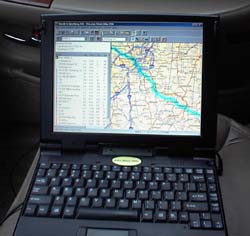
[Information sent back from the GPS satellite is
then translated thought a computer program providing you with
accurate navigation.]
The special software is an intricately-detailed map of the entire
United States (and even shows parts of Canada) which has on it
every highway, every connector, every local road, and even gravel
and dirt roads. The
mapping software allows you to enter the place where you would
like to start your trip, and then also your destination. You
indicate to the program that you would like it to calculate a
route using specific or general road choices, a scenic route or,
if you are in a hurry, the quickest route, and the software charts
your upcoming journey on the map with a magenta line.
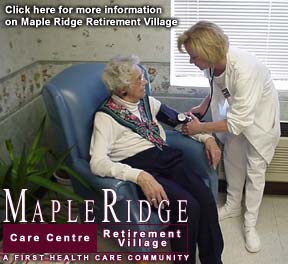
There is a treasure trove of information detailed on the map.
Included is information about motels and restaurants along
your route (even telephone numbers in case you want to call
ahead). You can zoom
in and zoom out in order to get a perfect perspective of the
details along the way, including names of forests, rivers, parks,
mountains, stores and waysides.
Perhaps the best feature of GPS computer navigation is that the
computer shows you your exact location marked on the map.
It appears as a green arrow pointing in the direction you
are traveling, and shows you where you have been.
You can see exactly which road you are on, where you are
heading and, in a navigation window, how soon you will arrive at
your next stop. It
even tells you your current elevation and your current speed.
But, best of all, the computer tells you in a plain voice
where and when to turn. I
call this divorce prevention!
In
order to use GPS to help plan and manage your trip, you will need
a notebook computer which has either a long-lasting battery or the
ability to plug into the cigarette lighter to provide lasting
power. You need a
CD-ROM drive in the notebook computer for the detailed mapping
data. And you will
need to purchase the GPS bundled hardware and software.
(To top of second
column in this article)
|

There
are two packages on the market currently which I have either owned
or used. Rand McNally sells their bundled hardware/software package
called GPS Streetfinder 2000 for under $100.
It includes the GPS device which connects to the notebook
computer by an external serial port and rests on the dashboard of
the car. The mapping
software is intuitive, easy to use, and will adequately guide you
from point A to point B.
The bundle I am most familiar with is by a mapping company known
as Delorme. It is
called Street Atlas USA, and sells in most computer stores for
about $150. The
Earthmate GPS device (bright yellow) also sits on the dashboard of
the car to constantly get a glimpse of the invisible satellites in
the sky. It tracks your position (Delorme uses the satellite data to
triangulate and report your position on the screen, not to report
your position to the government).
The mapping software seems easy to use and best of all,
audibly gives directions right from your notebook speakers:
“Turn Southwest on I-497, still three minutes away.”

If you have a modem in your notebook system and an Internet
account, you can download the latest road conditions before you
begin your journey. The
software even makes automatic adjustments for road hazards and
road construction.
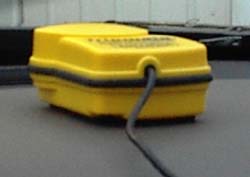
[Device for communicating with GPS satellite]
Our first experience with GPS cut hours off our drive time, showed
us which restaurants were coming up and helped us plot in advance
which motels we would choose. Even with GPS, though, we have made a few mistakes in
navigation. Road
signs are still imperfect, our ability to interpret them is
slightly flawed, and sometimes we still get just plain turned
around. But, the real
stress reliever in our travels with GPS is that now when we are on
the wrong road going the wrong way, we blame it on the computer!
[Jim
Youngquist, Lincoln
Daily News]
|



